Stranded east coast whale tests halted over safety concerns
- Published
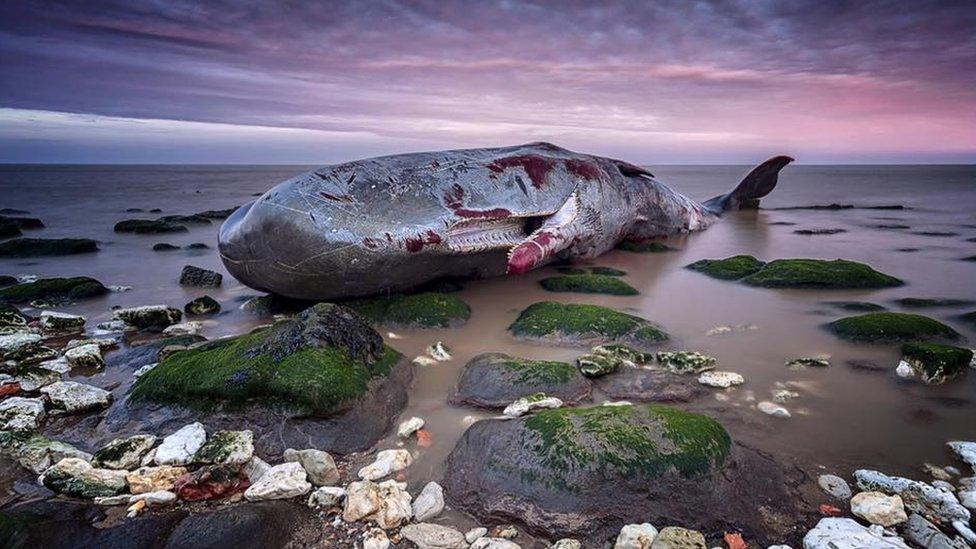
The first of five juvenile male sperm whales was found in Hunstanton, Norfolk
Post-mortem tests on three of five sperm whales stranded on the east coast will not be carried out because of safety concerns, scientists confirmed.
The first whale to become stranded died on a Norfolk beach on Friday.
Four others beached in Lincolnshire. One of these "exploded" during tests because of a build-up of internal gases. Another is on a former bombing range which is not safe to enter.
Initial samples taken from four of the whales will be examined by scientists.
It is not yet known how the whales came to be in the southern North Sea where they became stranded in shallow waters.
Read more on this story and others from Norfolk
Rob Deaville, from the Cetacean Strandings Investigation Programme - which examines all whale, dolphin and porpoise strandings in the UK - said once out of water the whales' organs would have compressed, causing them to die.
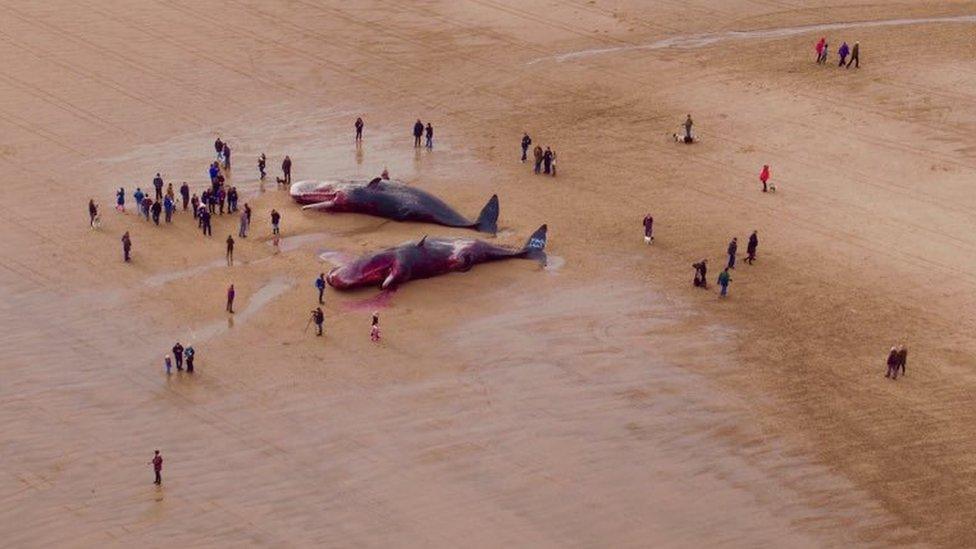
Two of the whales were found at Gibraltar Point near Skegness
"When they were in the water the weight would support their organs, but unfortunately when they're stranded alive they get compressed and that causes death fairly quickly," he said.
'Decompressed spectacularly'
All five whales are thought to be from the same bachelor pod.
Twelve others were found dead around the Netherlands and Germany last week.
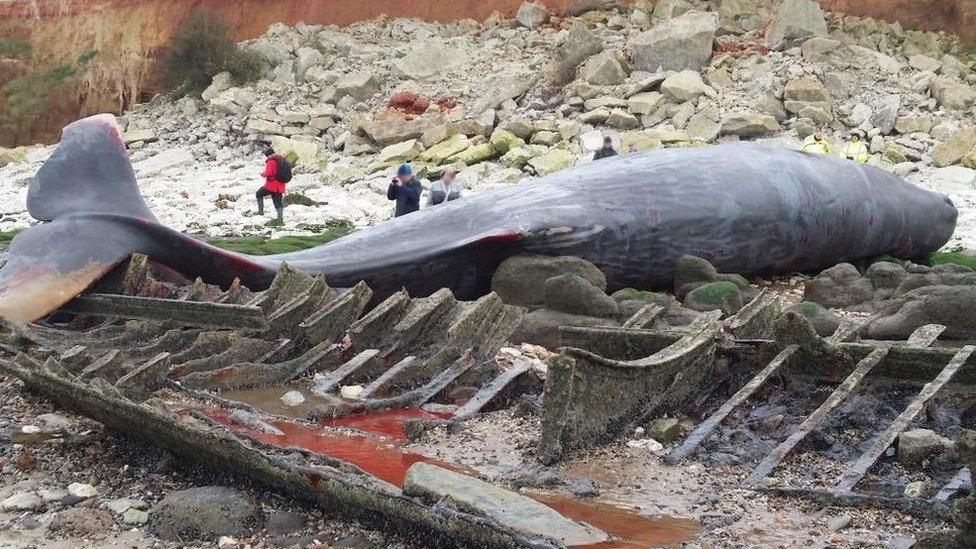
The whale died at about 23:00 GMT on Friday
Scientists were hoping full post-mortem examinations would give a clearer picture of how and why the whales became stranded on the beaches in Hunstanton in Norfolk, and Skegness and Wainfleet, both in Lincolnshire.
However, after one of the Skegness whales "decompressed rather spectacularly", the decision not to carry out examinations of the others was taken "for safety's sake", Mr Deaville said.
"When we made some incisions it opened up rather explosively. There was a big release of gas and other material across the beach - unfortunately we were slightly in the way of that."
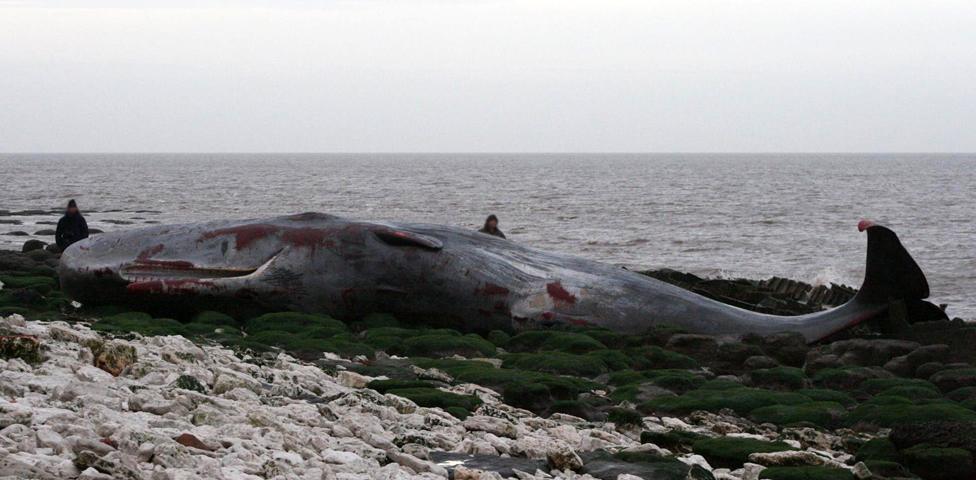
Sperm whales feed on deep water squid not found in the North Sea
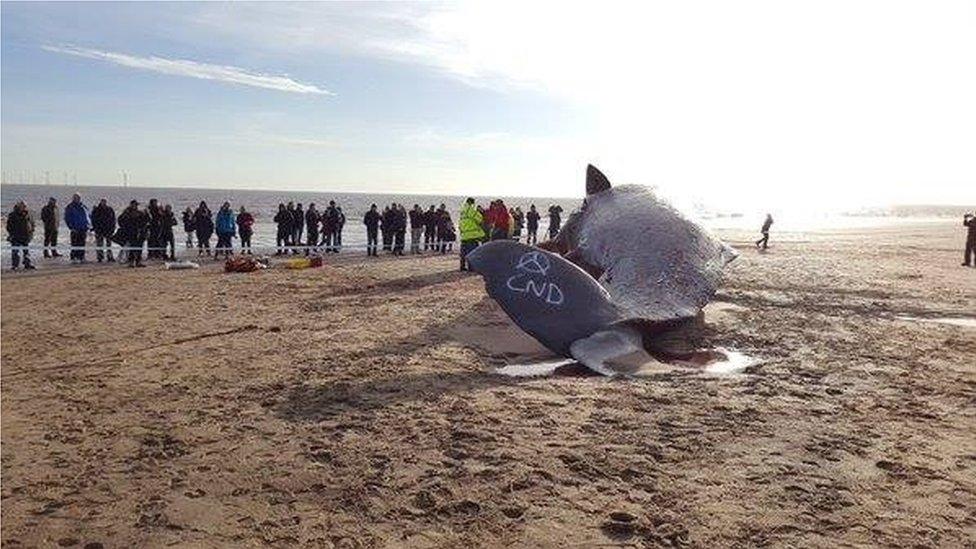
People crowded round while scientists examined one of the whales in Skegness
The whales' thick blubber keeps the creatures warm in the water, but also keeps them warm when they die, he said.
"It's almost like a pressure cooker."
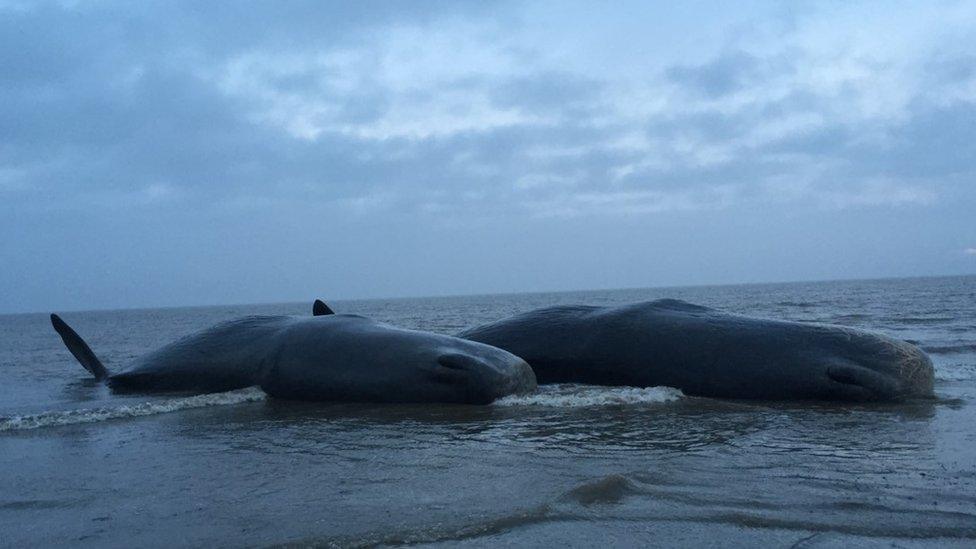
The first two Skegness whales were found by a nature reserve warden who told HM Coastguard
The Skegness whales had all decomposed "very quickly", Mr Deaville said, limiting what scientists could collect from the carcasses.
He added it could take "a few months" to complete investigations and they may never know why the whales came to be in the North Sea.

The carcasses of the two whales that washed up at Gibraltar Point near Skegness are to be moved to Lagoon Walk where one of the other whales is, East Lindsey District Council said.
All three are expected to be removed "within the next few days".
Footage of a dead whale being moved along the beach near Skegness
It is not yet known whether or when the Wainfleet whale will be removed. It landed on a beach where the "potential for unexploded ordnance" was deemed too great to allow scientists access.
The Hunstanton whale is to be cut up and removed by contractors working for King's Lynn and West Norfolk Borough Council, but this was unlikely to happen "for a couple of days" a spokeswoman said.
On Monday security guards were deployed to the beach to prevent people from "scavenging" from the carcass.
Boston Police has also warned people on Twitter not to take parts from the four whales in Lincolnshire.
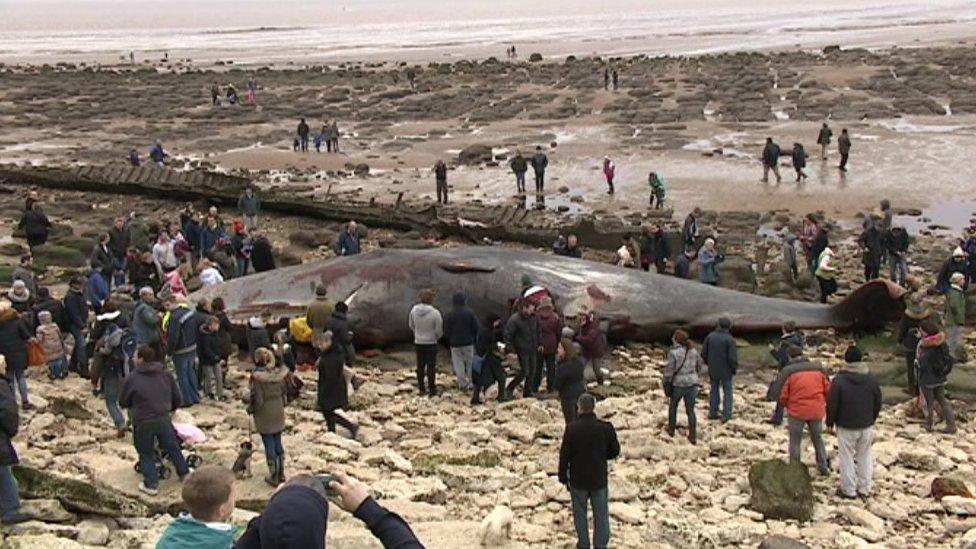
Hundreds of people took a look at one of the whales over the weekend
- Published25 January 2016

- Published25 January 2016
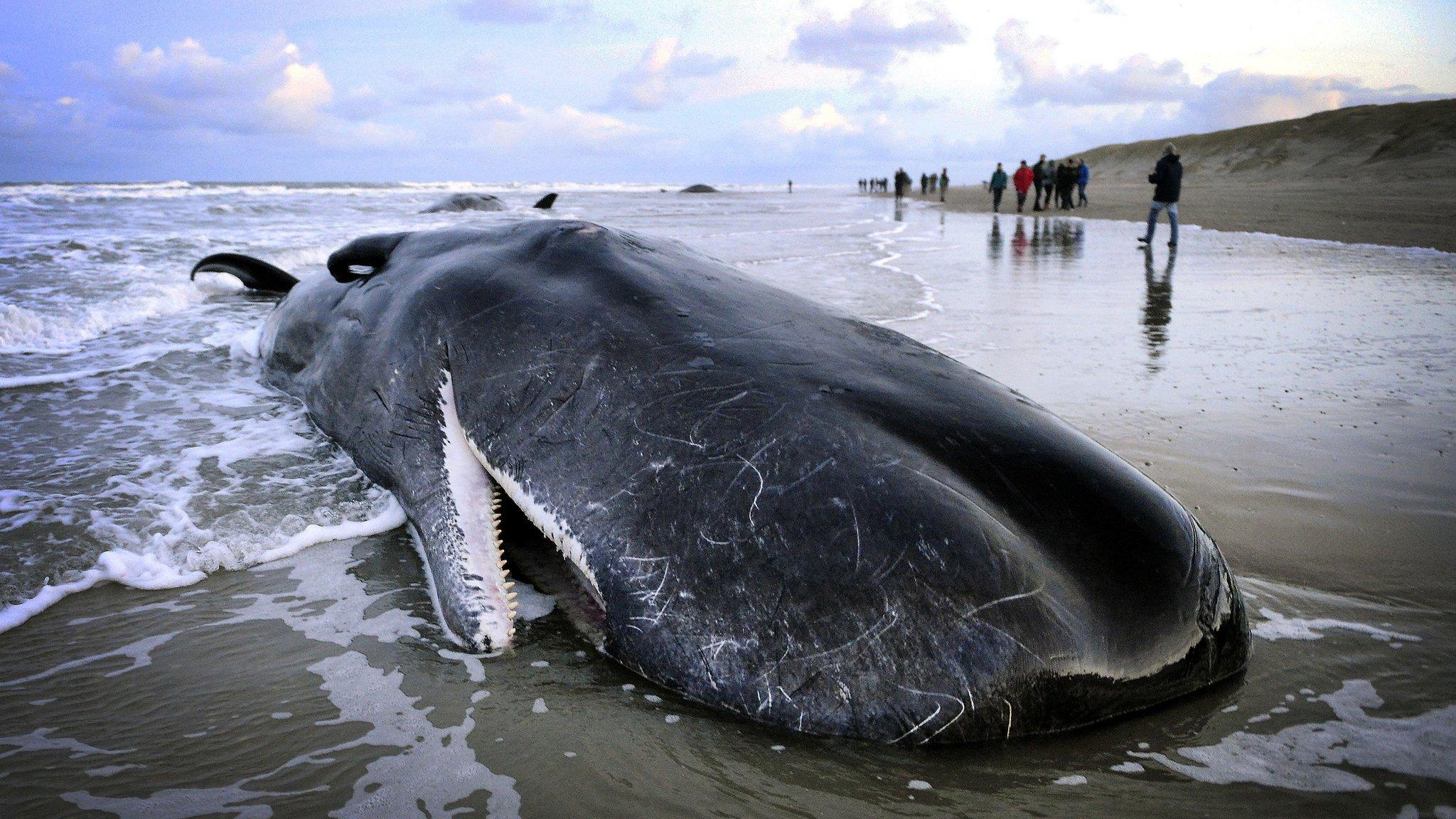
- Published25 January 2016
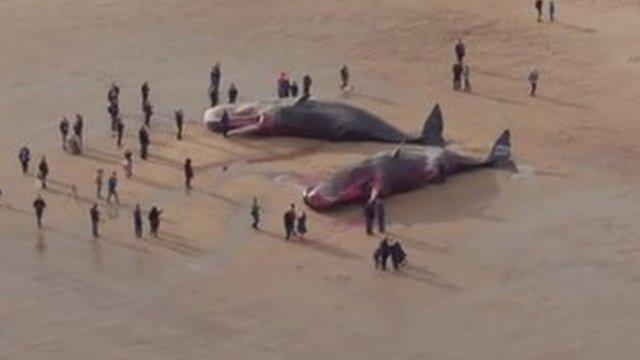
- Published23 January 2016
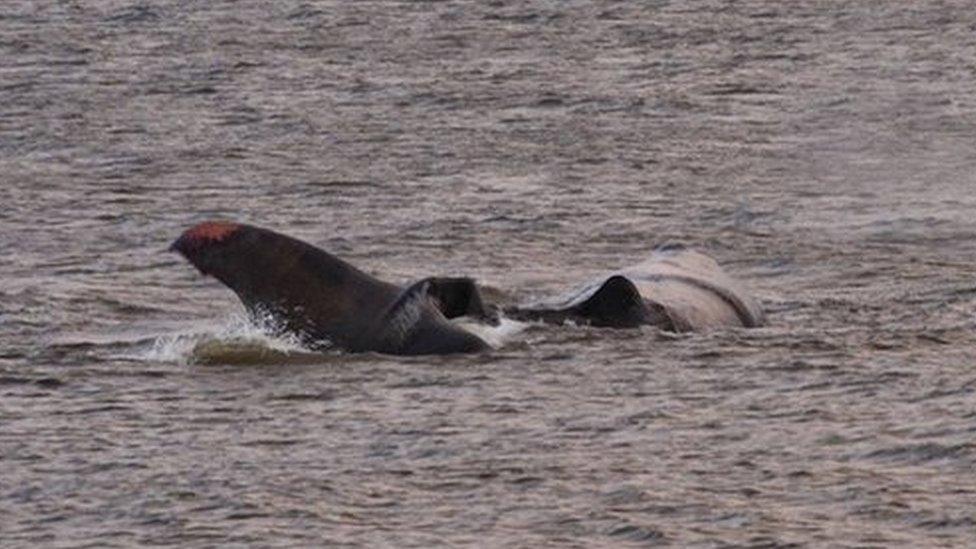
- Published22 January 2016
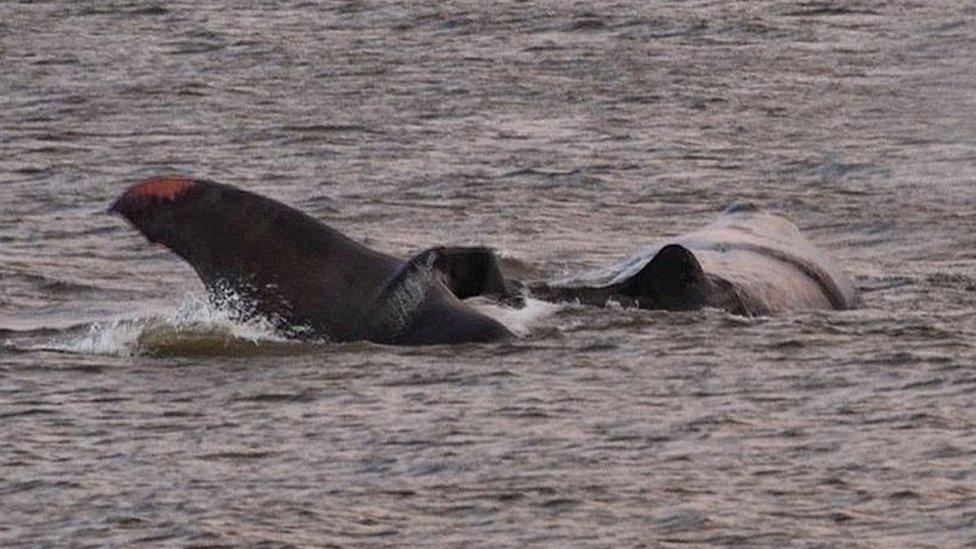
- Published8 March 2012
